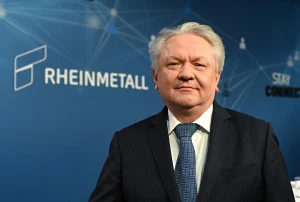
Russia uses grain deal as leverage to force West to make concessions
The Kremlin expresses its unwillingness to revive the Black Sea Grain Initiative in the absence of significant concessions from the West
This is stated in the daily report of the Institute for the Study of War (ISW).
The analysts recalled that on August 4, the Kremlin issued a joint statement with the official name African Peace Initiative. The statement was preceded by a meeting on July 28 between Russian leader Vladimir Putin and African leaders.
The document says that African leaders called for concrete steps to remove obstacles to the export of Russian grain and fertilizers, as well as to release and deliver to African countries 200,000 tons of Russian fertilizers stuck in European ports.
"These calls suggest that the African leaders support Russia’s conditions for revitalizing the Black Sea Grain Initiative," the think tank's analysts emphasized.
On August 4, Secretary of State Antony Blinken said that the US would continue to do "everything necessary" to ensure that Russia could freely export food to the world market, provided that it was ready to revive the "grain deal" and allow Ukraine to safely export grain through the Black Sea. In response to Blinken's statement, Kremlin spokesman Dmitry Peskov said that as soon as the US fulfills Russia's conditions, "the agreement will be immediately resumed."
"These statements give no clear indication that Russia intends to rejoin the Black Sea Grain Initiative and seeks to coerce the West to end limitations on its own exports," the ISW summarized.
Russia's termination of the grain deal
On July 16, the last ship loaded with Ukrainian agricultural products under the initiative left the port of Odesa. On 17 July, Russia announced the termination of the grain deal. In response, Volodymyr Zelenskyy said that it was necessary to continue using the grain corridor even despite Russia's withdrawal from the agreement. And Kuleba began urgent consultations at the UN.
The White House condemned Russia's withdrawal from the grain deal, which played a crucial role in reducing global food prices.
On 18 July, Russian presidential spokesman Dmitry Peskov said there were "certain risks" for parties trying to resume the Black Sea Grain Initiative without Russia's participation.
European Commission President Ursula von der Leyen said that it was critical to restore transport links across the Black Sea to provide food to the world's most vulnerable countries and to preserve the ability to export Ukrainian goods.
On 19 July, it was reported that Ukraine was considering transporting food as part of the grain initiative through the territorial waters of Bulgaria and neighbouring Romania.
At the same time, the Russian Ministry of Defence issued a statement threatening ships heading to Ukraine's Black Sea ports.
On July 21, Recep Tayyip Erdogan said he wanted to discuss the extension of the grain deal with his Russian counterpart Vladimir Putin and expressed confidence that it will work again.
On July 22, President of Ukraine Volodymyr Zelenskyy addressed NATO Secretary General Jens Stoltenberg with a proposal to immediately convene the NATO-Ukraine Council due to the security crisis in the Black Sea.
Volodymyr Zelenskyy wrote about his conversation with Stoltenberg on Telegram. It is noted that Zelenskyy and Stoltenberg discussed the implementation of the agreements reached during the Vilnius Summit of the Alliance, as well as further steps towards Ukraine's integration into NATO.
On July 25, the GUR released a report to the Russian leadership, which outlined the technologies used to prevent grain exports from Ukraine, indicating that the "grain deal" was deliberately disrupted.
On July 26, the UK Ministry of Defense reports that Russia has deployed a modern corvette, the Sergei Kotov, in the southern Black Sea to intercept merchant ships at sea. It patrols the transportation route between the Bosporus and Odesa.
Later, it became known that Russia was preparing aircraft and ships to block the Black Sea, detect and destroy ships.
Russian President Vladimir Putin announces that after unilaterally withdrawing from the Black Sea Grain Initiative, Russia is ready to replace Ukrainian grain and start supplying its own grain to African countries free of charge.
On July 30, during the Sunday Angelus prayer in the Vatican, Pope Francis called on the Russian side to renew the Black Sea Grain Agreement, which allowed Ukraine to safely transport grain. Later, President Volodymyr Zelenskyy said that he considered the Pope's call to Russia important.
On Sunday, July 30, despite the completion of the grain deal, three civilian cargo ships of foreign origin passed the Russian blockade in the Black Sea and anchored in one of Ukraine's grain ports in the Danube Delta.
Southern African countries are trying to convince Russia to return to negotiations on an agreement on the safe export of grain from Black Sea ports, which it abandoned last month.
On August 2, the United States said it had information that Russia was interested in resuming negotiations on the agreement, which ensured safe Black Sea grain exports.
Erdogan also announced an agreement with Putin on a visit to Turkey to discuss the extension of the grain deal.
On August 4, Ukraine's National Security and Defense Council Secretary, Oleksiy Danilov, declared that the country will dispatch its own ships carrying grain wherever they deem necessary, without seeking permission from anyone.
- News











































